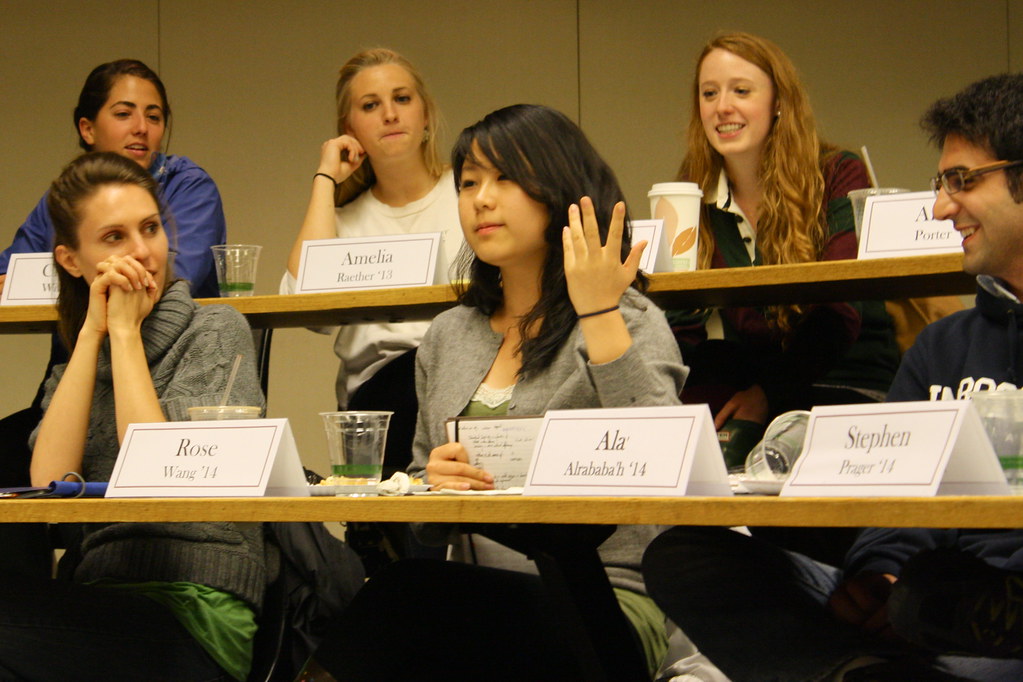Read a student's account of our most recent session in our Management Leadership and Development program below. For more information, about MLDP, click here.
 |
| Rose Wang '14 shares her ideas on the systematic process of negotiation. |
 |
| Alexander Matthey '14 demonstrates efficient problem solving and negotiation in action.
This week’s MLDP session “Problem Solving, Decision Making and Negotiation” led by Professor John Garvey was about how to identify and understand all types of problems we are facing every day, how to dissolve them in a constructive decision making process and how to take advantage of basic tools to be more successful in negotiating.
Professor Garvey opened the session by pointing our attention towards the current big public discussions and in which manner they are discussed in the media- mainly with anger and accusations on either side. At the same time, a fruitful dialogue would be a much more promising approach, but how can we get to a point where shared and opposed interests are aligned in a fashion that allows us to reach an agreement? The key is to gather as much information about the cause and the people involved as possible, weigh the pros and cons and then commit to a decision that promises to leave most options open for the future (“best choice”). As an example, Prof. Garvey showed a clip about President Obama’s decision making regarding the operation leading to Osama bin Laden’s execution last year.
With more real life examples as well as two more activities, one being an all-or-nothing negotiation game and the other being a small group exercise about putting yourself in another person’s shoes, we learned that it is crucial to know your Best Alternative To an Negotiated Agreement (“BATNA”) when designing our negotiation strategy in order to maximize our benefit. The more aware we are of our BATNA and the other person’s view and intentions, the more successful we can build a feasible bridge and reach an outcome, that both leaves us in a good standing and gets us where we want to be.
-By Alexander Matthey '14
|
